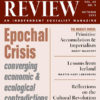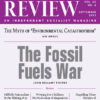Britain’s Noxious History of Imperial Warfare
In his recent widely praised Unfinished Empire: The Global Expansion of Britain, John Darwin….complains that even today there are historians of empire who “feel obliged to proclaim their moral revulsion against it, in case writing about empire might be thought to endorse it.” Apparently, he laments, there are still historians who consider it “de rigueur to insist that for them, empire was evil.” And, even more incredibly, there are some historians who “like to convey the impression that writing against empire is an act of great courage….” Darwin seems to believe that his new book is responding to some sort of anti-imperialist consensus, that the belief that the British Empire was a criminal enterprise has actually won the day and this has to be challenged. This will come as something of a surprise to most people who are under the distinct impression that the exact opposite is the case—that there is a pro-imperialist consensus very much in place. | more…
Cambodian Political History
It’s the System Stupid
On Thursday, December 13, 2012, The Guardian announced Queen Elizabeth finally received an answer to her question—”Did nobody see this coming?”—about the 2008 financial crisis.… Perhaps she could have also asked three more questions: Does nobody see the suffering and socioeconomic injustices of oligopolistic-finance capitalism? Does no one see that the problems are structural and systemic? And is there no alternative to a system that generates continuous “quadruple crises”—the socioeconomic, political, environmental, and personal/psychological?… The conventional wisdom is “There Is No Alternative,” or TINA. For this reason most Americans simply acquiesce to capitalistic social relations and, like Sisyphus, are resigned to performing eternal tasks while enduring the “endless” quadruple crises generated by a pathological system.… The most extraordinary aspect concerning the absence of an alternative is that it is fallacious. The capitalistic system itself must be transformed. To put it into a slogan: Capitalism Is No Alternative, or CINA. | more…
Zionism, Imperialism, and Socialism
Moshé Machover is a mathematician and political activist who was born in Tel Aviv in 1936 and has lived in London since 1968. He is a co-founder of the radical left Israeli Socialist Organization (ISO), which is better known by the name of its journal Matzpen (compass). The book under review is a collection of thirty-five essays written by Machover, sometimes in collaboration with other members of ISO, and dealing with the conflict between Israelis and Palestinians. The earliest essay in the collection appeared in 1966 while the most recent one was published in 2011. Perhaps the best known article is “The Class Nature of Israeli Society,” which appeared in New Left Review in 1971. Taken together, these essays provide an original and often compelling Marxist analysis of Zionism and its relationship to the Arab world. The ideas contained in this book, Machover says, are a collective product of the ISO. He is merely the carrier. | more…
Radical Internationalist Woman
Eslanda Robeson’s robust life and political actions spanned two-thirds of the twentieth century, from the Harlem Renaissance to the London theatre, from studies with students from the British empire’s colonies to travels to the rural villages of Uganda and the Congo, through anti-fascism and the Second World War, across the Cold War and African decolonization, from the Soviet and Chinese revolutions to the founding of the United Nations, from fearlessly challenging McCarthyism to attendance at the All-African Peoples Conference in Ghana, from Jim Crow to the surging of the Black Freedom Movement. Her life as an internationalist, Africanist, political radical, writer, anthropologist, journalist, acclaimed speaker and, oh, yes, did I say the wife, sometimes partner, and enduring political comrade of actor, singer, and militant activist himself, Paul Robeson, spanned virtually every continent and every struggle for equality, peace, and liberation. | more…
More Powerful Than Dynamite
The setting of Thai Jones’s wonderful book will be all too familiar to those involved in direct action politics: a liberal urban administration, a radical protest movement, disparities of wealth deepened by economic crisis. A series of incidents sets off a new phase of demonstrations, with demands from the city’s elites for a restoration of order. The radical protests become disruptive, challenging the “progressive” administration’s commitment to free speech and the right to protest. Strident radicals, bent on revolution over reform, become objects of fascination for the press, and a political tennis ball for the city’s governing class. As it happened in 1970 and 2011, so it was in 1914, New York City’s “year of anarchy” in Thai Jones’s talented telling. The parallels to the protest waves of the past, particularly the late 1960s and early ’70s, and the recent Occupy phenomenon, are obvious, and most reviewers of Jones’s fine work have highlighted these connections. Jones himself makes this history relevant to our own times, but perhaps not in the more obvious ways. | more…

October 2013 (Volume 65, Number 5)
A sign of the crass economic culture of our times is the recent release by Hasbro of the game “Monopoly Empire” based on the well-known “Monopoly” game, first mass produced in 1935 by Parker Bothers, now a Hasbro subsidiary. The new version can be played in thirty minutes and is designed to take the friction out of the game while glorifying the modern corporate system. Players collect iconic brands of corporations such as McDonalds, Coca-Cola, Nestlé, and Samsung, which they add to billboard “towers” in a race to the top. Players no longer leave the game due to bankruptcy. The goal is simply to build the biggest monopoly brand empire. | more…
The Epochal Crisis
It is an indication of the sheer enormity of the historical challenge confronting humanity in our time that the worst economic crisis since the Great Depression, sometimes now called the Second Great Depression, is overshadowed by the larger threat of planetary catastrophe, raising the question of the long-term survival of innumerable species—including our own. An urgent necessity for the world today is therefore to develop an understanding of the interconnections between the deepening impasse of the capitalist economy and the rapidly accelerating ecological threat—itself a by-product of capitalist development. | more…
Primitive Accumulation and Imperialism
Lessons from Iceland
If we are to build support for an alternative to capitalism we need clarity on the causes and consequences of the contemporary capitalist drive for greater liberalization and privatization, as well as the benefits from and limits to state direction of capitalist economic activity. Although a small country, Iceland’s recent experience has much to teach us about capitalist dynamics and strategies of transformation. | more…
Rethinking Is Not Demonizing
Identity Politics and Left Activism
The biggest internal debate absorbing the world left for at least the last seventy-five years has been whether identity is a left concept and therefore a left concern. In 1950, most activists on the left would have said no. Today a majority would say yes, indeed. But the debate remains fierce. | more…

September 2013 (Volume 65, Number 4)
When confronted in the 1980s with the failure of the younger generation of economists (both mainstream and radical) to take seriously the issue of the return of economic stagnation, Harry Magdoff and Paul Sweezy stated in their book Stagnation and the Financial Explosion (Monthly Review Press, 1987, 12): “There is a temptation to say: just wait and see, you’ll find out soon enough…. But it would be a cop-out to leave it at that. We owe it to our readers at least to try to make clearer what we mean by stagnation and why we think it is so important.” They proceeded to do exactly that, producing a work that in terms of the trends of the last quarter-century has to be regarded as prescient.… Today, decades later, we can see the depth of the stagnation tendency of monopoly capitalism finally dawning upon some of the most realistic and competent of mainstream economists. | more…